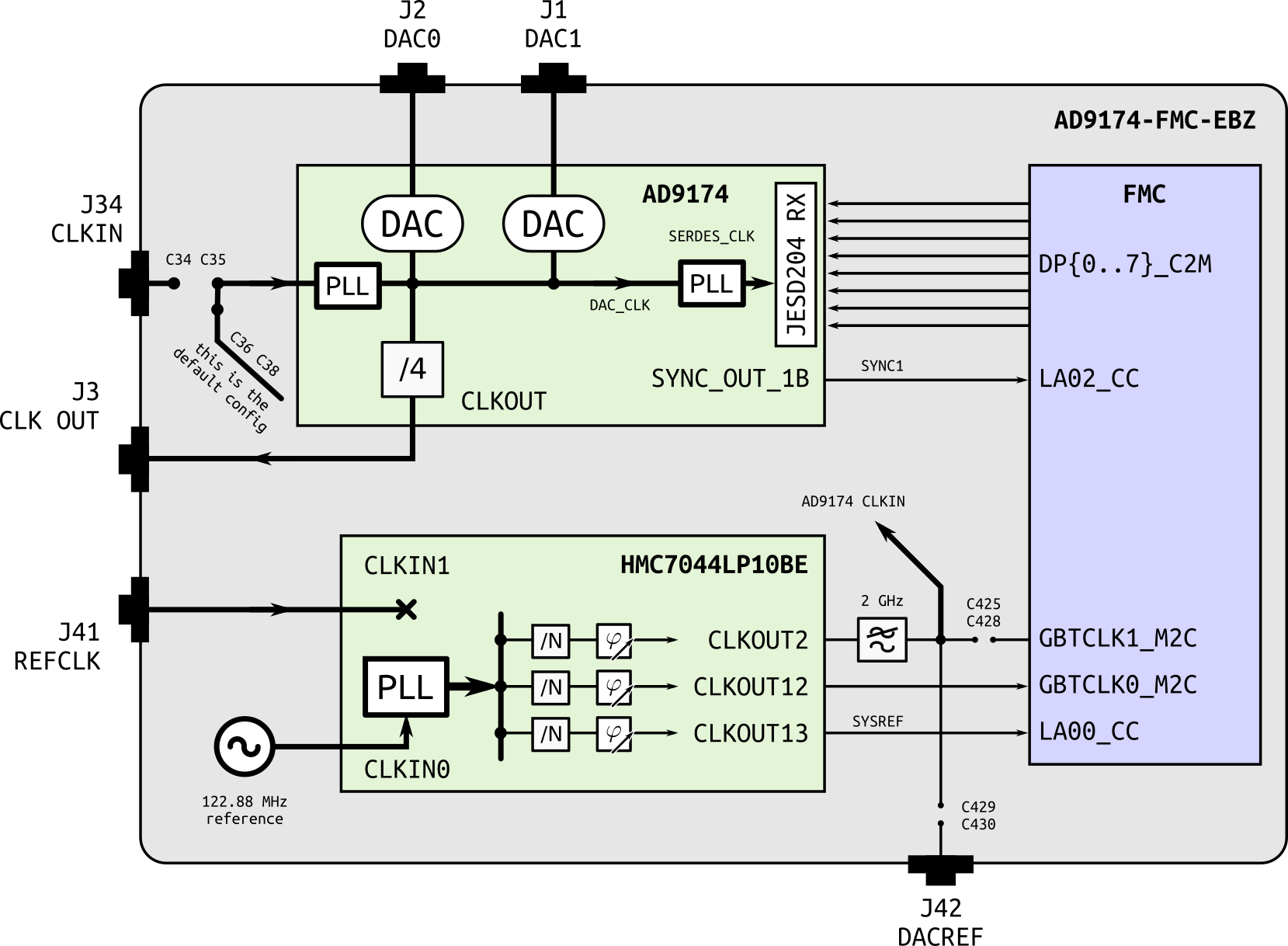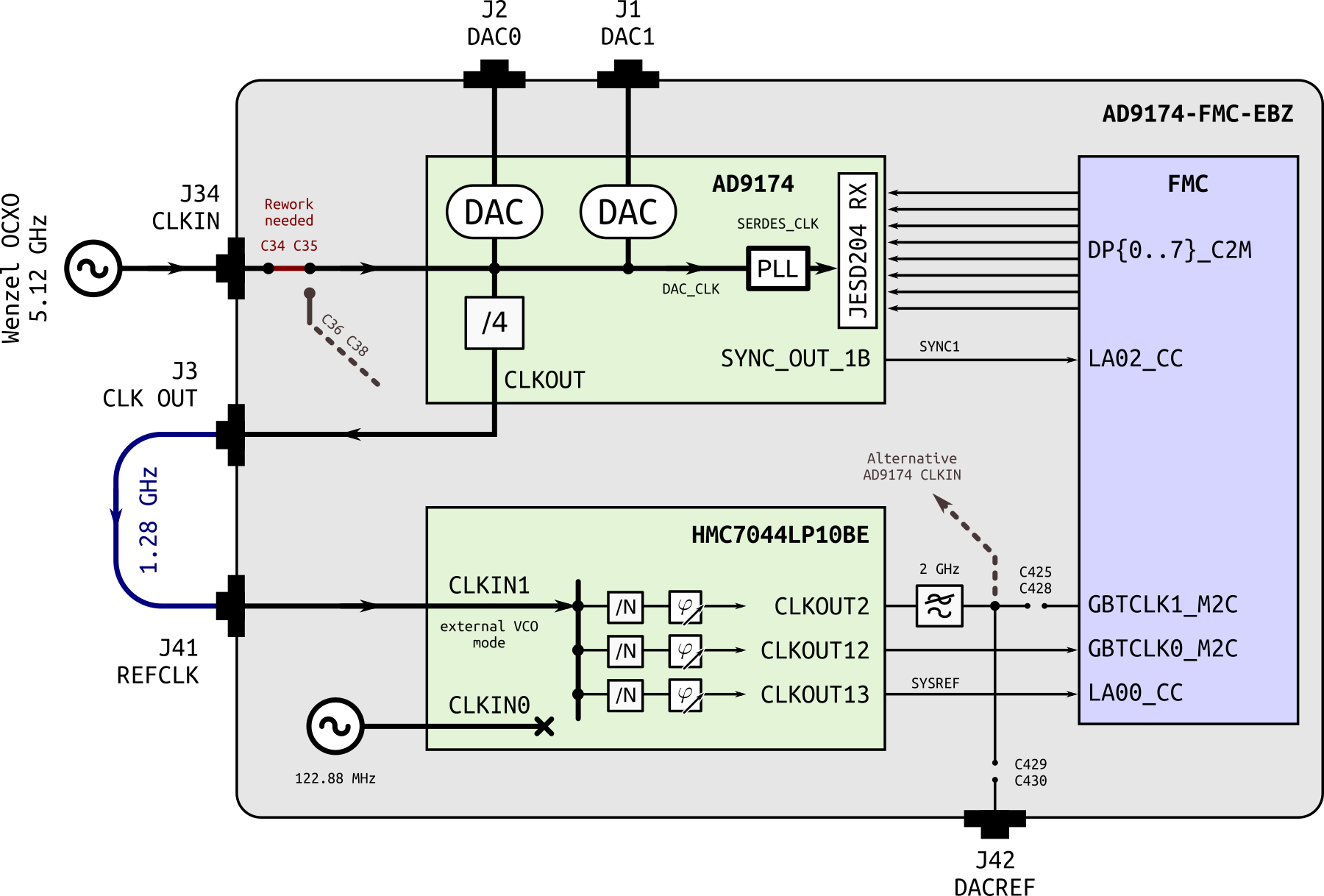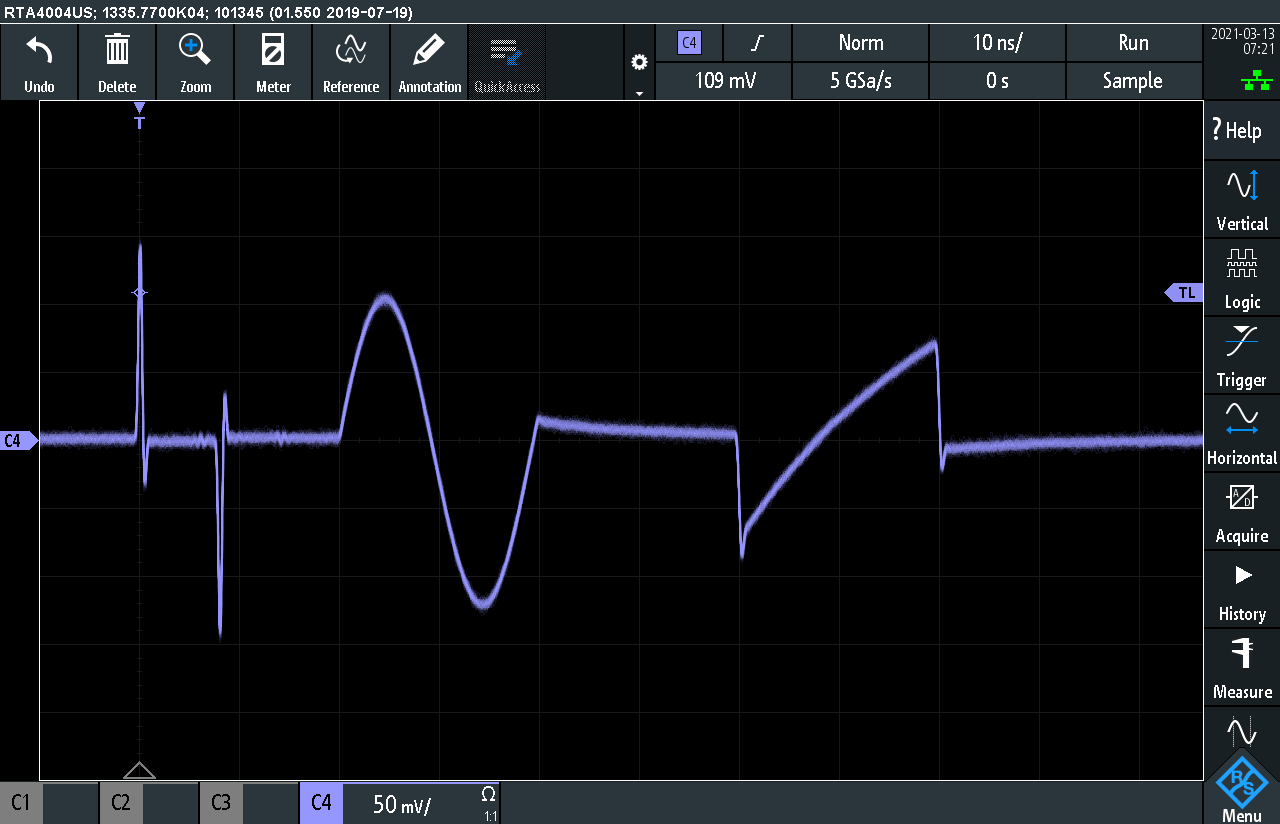AD9174 demo project
Get the AD9174-FMC-EBZ demo board running on a vc707.
Install
First install litex according to: https://github.com/enjoy-digital/litex#quick-start-guide
Then replace the jesd204b/ library with my forked version
cd litejesd204b/
git remote add fork https://github.com/yetifrisstlama/litejesd204b.git
git fetch fork
git checkout -b fork fork/master
pip3 install -e .Internal clocking setup
Uses the on-board 122.88 MHz crystal oscillator + 2 x PLL in the HMC7044 + PLL in the AD9174 to generate a DAC sampling clock.
External clocking setup
Uses an external (very high quality) signal source directly as the DAC sampling clock.
Building and initializing the AD9174
# Build a bit-file for the vc707
python3 top.py --csr-csv build/csr.csv --csr-json build/csr.json --f_dsp 307200000 --build
# build/csr.json contains the litex register map
# Load the bit-file over the vc707 USB-jtag port
python3 top.py --load
# GPIO LEDS: 2: tx_clk, 1: sys_clk, 0: jsync status
# At least the sys_clk one should blink at 1 Hz
# Start litex server on the vc707 USB-uart port
litex_server --uart --uart-port /dev/ttyUSB2 --uart-baudrate 115200
# Open `spi/setup_internal_clock.ipynb` in jupyter notebook
# to interact with the FPGA
cd spi
jupyter notebookArbitrary Waveform Generator mode
- clocked by external 5 GHz source
- JESD mode = 20: FPGA provides a real-valued sample stream.
f_dsp_clk = 312.5 MHz: 16 samples per FPGA clock- See setup script
See also
- Spreadsheet with supported JESD modes and clock rates for AD9174


